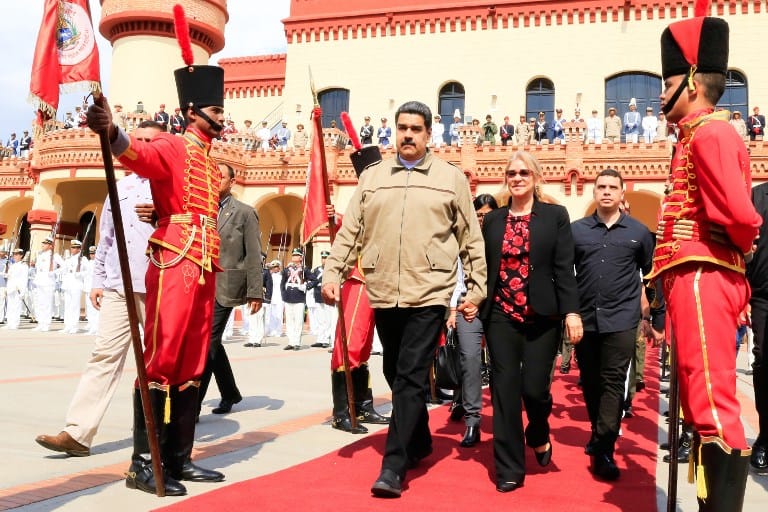The president of Venezuela, Nicolás Maduro, regained control of Parliament on Sunday. He declared victory in legislative elections that had been boycotted by almost all the opposition and were marked by an abstention rate of 69% and a strong international rejection.
The United Socialist Party of Venezuela (PSUV) and its allies obtained 67.6% of the 5,264,104 votes counted in a first bulletin of the National Electoral Council (CNE).
“A new stage of reconstruction of Parliament and the recovery of our country has begun,” Maduro wrote on Twitter on Monday morning.
This electoral triumph, rejected by many countries, consolidates Maduro’s power. He has control of the rest of the State institutions, as well as the Armed Forces, the mainstay of his government.
In 2015, the opposition broke 15 years of Chavista hegemony and took over Parliament in elections with 71% participation.
‘There was no election,’ critics say
Abstention reached 69% on Sunday for the elections. Many voting centers, where the use of face masks was mandatory due to the pandemic, were half empty, AFP found.
The main opposition political parties, led by Juan Guaidó, had branded the legislative elections as “fraud” and called on the population to stay home.
“There was no election yesterday,” Guaidó said at a press conference on Monday. “They blackmailed people and people just didn’t accept it.”
Sunday’s election featured the highest abstention in this type of election since 2005, when only 25% of voters went to the polls. Despite the majority boycott, a dissident fraction of the opposition nominated candidates.
“The answer to the fraud (…) is to act in the street,” claimed Guaidó, who called a plebiscite from Monday to Saturday, to extend the parliamentary term until there are “free, verifiable and transparent elections.”
‘He stole the elections’
The opposition also boycotted the 2018 presidential vote.
The then-opposition majority in Parliament declared Maduro a “usurper” for winning the elections fraudulently, and Guaidó claimed the presidency in charge of Venezuela with the backing of 50 countries — the United States among them.
The head of US diplomacy, Mike Pompeo, reiterated Monday that Washington “will continue to recognize” Guaidó as interim president.
“The international community cannot allow Maduro, who is in power illegitimately because he stole the 2018 election, to gain from stealing a second election,” Pompeo said in a statement.
Washington is leading the pressure against Maduro with economic sanctions on Venezuela, including an oil embargo in place since April 2019.
Brazil, Canada, Colombia, Costa Rica and Panama ignored the Sunday elections, as did the Organization of American States (OAS).
The British government indicated on Monday that it “will not recognize the legitimacy” of this new National Assembly that emerged from “deeply flawed elections,” Foreign Minister Dominic Raab said, reiterating his support for Guaidó.
Calls for transparency
The European Union, which tried unsuccessfully to postpone the elections in order to send an observation mission, indicated for its part that “minimum international standards” were not met.
The bloc “cannot recognize this electoral process as credible, inclusive or transparent,” said the head of European diplomacy, Josep Borrell.
Amid the signs of international rejection, Maduro found voices of support for legislative bodies such as the Russian government, which celebrated the “transparency” of the process.
“We start from the principle that the new National Assembly will be the ground (…) for a constructive dialogue between all political forces” and will help “to overcome the disagreements that exist in Venezuelan society through negotiations,” the Russian Foreign Ministry said.
The Russian statement is in line with former Spanish leader José Luis Rodríguez Zapatero, who was one of the international supporters of the election alongside former presidents Evo Morales, from Bolivia; Rafael Correa, from Ecuador, and Fernando Lugo, from Paraguay, as well as former Colombian senator Piedad Córdoba.






